About Sinnissippi Centers
Sinnissippi Centers – Oregon Office in Oregon, Illinois is here to support you with outpatient care designed to help you conquer substance use dependency and reclaim your life. You’ll find compassionate professionals who understand how hard it can be to ask for help and are ready to walk beside you. Their outpatient and intensive outpatient programs offer structure and consistency with services shaped to support your recovery.
While you’re in the area, you can take time for yourself nearby. Sinnissippi Park has some peaceful walking trails, the Rock River brings gorgeous views and nature, and the Oregon Public Library is a calming place to sit and read. These spots are perfect for restoring your energy and giving your mind some breathing room.
You can use Medicaid, Medicare, private insurance, or TRICARE to pay for your services. If you don’t have insurance then a sliding fee scale will be offered to make care more accessible. The center also receives funding from state and federal programs, so you don’t have to go without support.
MAT in Oregon, Illinois
If medication is part of your plan, Sinnissippi offers medication assisted treatment (MAT) using buprenorphine or naltrexone. You’ll also have access to psychiatric services for medication assessment and monitoring. If your life includes legal challenges then they can help you with that too. Their court involved programs offer helpful guidance with zero judgment.
What Makes This Place Special
We like that psychiatric services are available across all their main offices to add an extra layer of support. What strikes us most about them is how they bring mental health and substance use care together in one place, making it easier for you to focus on getting better. Their crisis response teams and mental health first aid programs reflect their commitment to helping you even during your most critical moments.
Latest Reviews
Rehab Score
Gallery
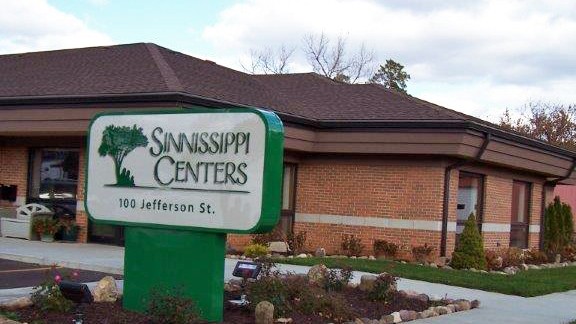
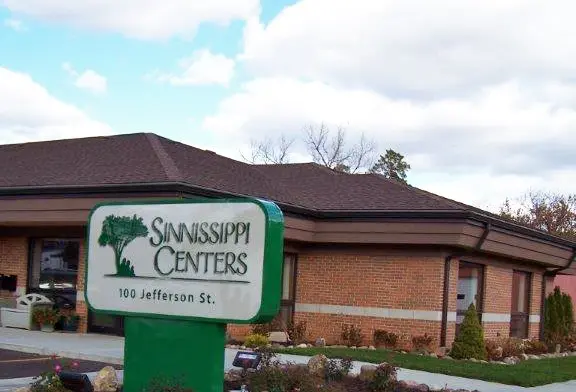
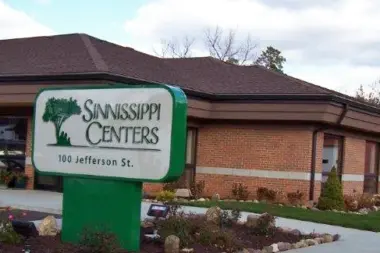
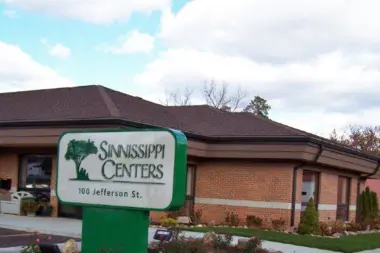
Accepted Insurance
Other Forms of Payment
Private insurance refers to any kind of healthcare coverage that isn't from the state or federal government. This includes individual and family plans offered by an employer or purchased from the Insurance Marketplace. Every plan will have different requirements and out of pocket costs so be sure to get the full details before you start treatment.
Self-pay involves paying for treatment out of your own pocket. You can use savings or credit, get a personal loan, or receive help from family and friends to fund your treatment. If you don't have insurance or your insurance plan doesn't cover a specific program, self-pay can help ensure you still get the care you need.
Financial aid can take many forms. Centers may have grants or scholarships available to clients who meet eligibility requirements. Programs that receive SAMHSA grants may have financial aid available for those who need treatment as well. Grants and scholarships can help you pai for treatment without having to repay.
Medicare is a federal program that provides health insurance for those 65 and older. It also serves people under 65 with chronic and disabling health challenges. To use Medicare for addiction treatment you need to find a program that accepts Medicare and is in network with your plan. Out of pocket costs and preauthorization requirements vary, so always check with your provider.
Medicaid is a state based program that helps lower-income individuals and families pay for healthcare. Medicaid covers addiction treatment so those enrolled can use their coverage to pay for rehab. When a program accepts Medicaid the client often pays very little or nothing out of their own pocket.
Military members, veterans, and eligible dependents have access to specific insurance programs that help them get the care they need. TRICARE and VA insurance can help you access low cost or no cost addiction and mental health treatment. Programs that accept military insurance often have targeted treatment focused on the unique challenges military members, veterans, and their families face.
Addiction Treatments
Levels of Care
Outpatient Programs (OP) are for those seeking mental rehab or drug rehab, but who also stay at home every night. The main difference between outpatient treatment (OP) and intensive outpatient treatment (IOP) lies in the amount of hours the patient spends at the facility. Most of the time an outpatient program is designed for someone who has completed an inpatient stay and is looking to continue their growth in recovery. Outpatient is not meant to be the starting point, it is commonly referred to as aftercare.
Drug and alcohol addiction often takes a heavy toll on one's body. Over time, a physical dependence can develop, meaning the body physiologically needs the substance to function. Detox is the process of removing drugs and/or alcohol from the body, a process that can be lethal if mismanaged. Medical detox is done by licensed medical professionals who monitor vital signs and keep you safe, healthy, and as comfortable as possible as you go through detox and withdrawal.
Sinnissippi Centers offers day and evening IOP programs for individuals with a substance use disorder. The program uses evidence based practices that have shown to be successful in helping individuals in treatment. IOP is based on proven practices that benefit members in the group. Group members are challenged to look inside and gain insight to their problem.
Intervention services helps family or friends of addicts stage an intervention, which is a meeting in which loved ones share their concerns and attempt to get an addict into treatment. Professional intervention specialists can help loved ones organize, gather, and communicate with an addict. They can guide intervention participants in describing the damage the addict's behavior is causing and that outside help is necessary to address the addiction. The ideal outcome of an intervention is for the addict to go to rehab and get the help they need.
Sinnissippi Center also provides members with the necessary tools to continue building their recovery. This will include: a Continuing Care Recovery Plan, relapse prevention, developing recovery goals, building support systems, and encouraging healthy alternatives and healthy relationships. Following completion of IOP, individuals are encouraged to join Aftercare, which meets once a week and is offered at various Sinnissippi office locations.
Sober Living Houses (SLHs), aka sober homes or halfway houses, are safe, substance-free, supportive living facilities for those recovering from substance abuse. Ideal for those who've just been through inpatient or outpatient treatment, SLHs are supervised environments with rules that support sobriety, such as curfews, shared chores, and therapeutic meetings. Residents are also often trained on life skills and coping skills to make it easier to transition into society. SLHs also provide a strong sense of community that can lead to the kind of deep and lasting connections with other sober individuals that supports a new, healthy lifestyle.
Treatments
The goal of treatment for alcoholism is abstinence. Those with poor social support, poor motivation, or psychiatric disorders tend to relapse within a few years of treatment. For these people, success is measured by longer periods of abstinence, reduced use of alcohol, better health, and improved social functioning. Recovery and Maintenance are usually based on 12 step programs and AA meetings.
Drug rehab in Illinois is designed to help people recover from addiction to a number of substances. The length of each program and its intensity tend to vary, and the plan of care is based on your individual needs.
Many of those suffering from addiction also suffer from mental or emotional illnesses like schizophrenia, bipolar disorder, depression, or anxiety disorders. Rehab and other substance abuse facilities treating those with a dual diagnosis or co-occurring disorder administer psychiatric treatment to address the person's mental health issue in addition to drug and alcohol rehabilitation.
A combined mental health and substance abuse rehab has the staff and resources available to handle individuals with both mental health and substance abuse issues. It can be challenging to determine where a specific symptom stems from (a mental health issue or an issue related to substance abuse), so mental health and substance abuse professionals are helpful in detangling symptoms and keeping treatment on track.
Opioid rehabs specialize in supporting those recovering from opioid addiction. They treat those suffering from addiction to illegal opioids like heroin, as well as prescription drugs like oxycodone. These centers typically combine both physical as well as mental and emotional support to help stop addiction. Physical support often includes medical detox and subsequent medical support (including medication), and mental support includes in-depth therapy to address the underlying causes of addiction.
Programs
Adult rehab programs include therapies tailored to each client's specific needs, goals, and recovery progress. They are tailored to the specific challenges adult clients may face, including family and work pressures and commitments. From inpatient and residential treatment to various levels of outpatient services, there are many options available. Some facilities also help adults work through co-occurring conditions, like anxiety, that can accompany addiction.
Young adulthood can be an exciting, yet difficult, time of transition. Individuals in their late teens to mid-20s face unique stressors related to school, jobs, families, and social circles, which can lead to a rise in substance use. Rehab centers with dedicated young adult programs will include activities and amenities that cater to this age group, with an emphasis on specialized counseling, peer socialization, and ongoing aftercare.
Clinical Services
Dialectical Behavior Therapy (DBT) is a modified form of Cognitive Behavioral Therapy (CBT), a treatment designed to help people understand and ultimately affect the relationship between their thoughts, feelings, and behaviors. DBT is often used for individuals who struggle with self-harm behaviors, such as self-mutilation (cutting) and suicidal thoughts, urges, or attempts. It has been proven clinically effective for those who struggle with out-of-control emotions and mental health illnesses like Borderline Personality Disorder.
Family Care Coordinators (FCC) offer support to children and their families by helping them find needed resources. The Care Coordinators meet with families in the comfort of their own homes or another location. Through the help of an FCC, children, families, and communities have the opportunity to become healthier and happier.
Group therapy is any therapeutic work that happens in a group (not one-on-one). There are a number of different group therapy modalities, including support groups, experiential therapy, psycho-education, and more. Group therapy involves treatment as well as processing interaction between group members.
In individual therapy, a patient meets one-on-one with a trained psychologist or counselor. Therapy is a pivotal part of effective substance abuse treatment, as it often covers root causes of addiction, including challenges faced by the patient in their social, family, and work/school life.
The Skill Mill offers individuals with a serious mental illness the opportunity to work in a supportive and therapeutic environment. Clients of Sinnissippi Centers are given an opportunity to learn vocational skills, good work ethic, earn money, improve self-esteem, learn to work with others in a cooperative effort, and improve chances for future competitive employment. Individuals are paid according to minimum wage or commensurate wage according to the Illinois Employment Standards set forth by the workshop certification.
Trauma therapy addresses traumatic incidents from a client's past that are likely affecting their present-day experience. Trauma is often one of the primary triggers and potential causes of addiction, and can stem from child sexual abuse, domestic violence, having a parent with a mental illness, losing one or both parents at a young age, teenage or adult sexual assault, or any number of other factors. The purpose of trauma therapy is to allow a patient to process trauma and move through and past it, with the help of trained and compassionate mental health professionals.
Amenities
-
Residential Setting
-
Private Setting
Staff & Accreditations
Staff
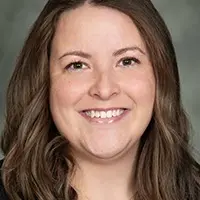
Charis Allen, MSW, LCSW, CADC
Manager of SUPR Services
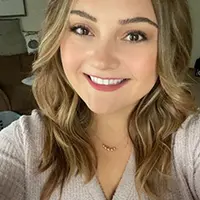
LeAnn Alexandria, MHP
Behavioral Health Clinician
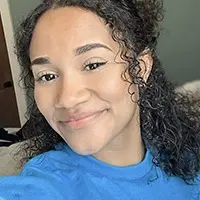
Rainbow Allen, BA, MHP
Youth CST Clinician
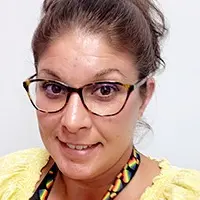
Crystal Ammann, BS, MHP
Behavioral Health Clinician
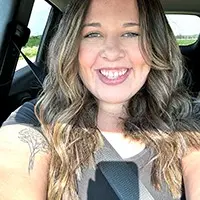
Hannah Anderson, MHP
Behavioral Health Clinician
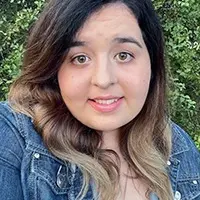
Laura Arnold, MS, QMHP
Behavioral Health Clinician
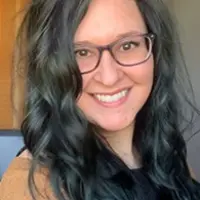
Tanja Babel, MSW, MHP
Behavioral Health Clinician
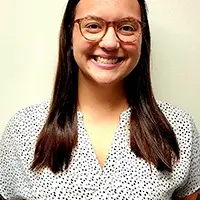
Chloe Baer, BA, MHP
Youth CST Clinician
Accreditations

The Joint Commission, formerly known as JCAHO, is a nonprofit organization that accredits rehab organizations and programs. Founded in 1951, the Joint Commision's mission is to improve the quality of patient care and demonstrating the quality of patient care.
Joint Commission Accreditation: Yes
Contact Information
100 Jefferson Street
Oregon, IL 61061





